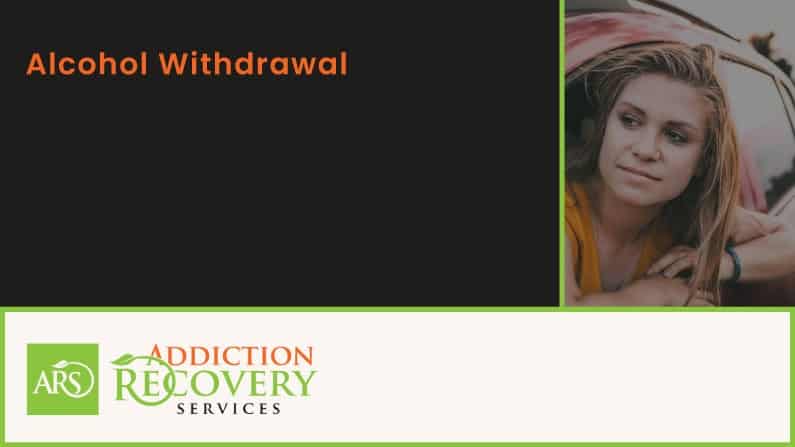
I met my friend Chad when we were in the same frat in college. When we were in school, we all drank a lot. It was part of the culture. We would party every weekend, but when we graduated and started our careers, most of our fraternity brothers didn’t drink as much anymore; we had more important things to do.
At first, I thought Chad was doing the same thing, but over time, I realized he was still drinking a lot. Every time we hung out, no matter what setting or time of day, he always wanted to have a couple drinks. Even if I declined, he still insisted on drinking. I started to wonder if Chad had a drinking problem.
If you suspect someone has a problem with alcohol, you might want to watch for withdrawal symptoms when they’re not drinking. Alcohol withdrawal is common among people who are struggling with alcohol addiction.
Many drugs cause withdrawal symptoms that are uncomfortable and can make quitting hard. However, the symptoms of alcohol withdrawal can cause permanent health problems, including death. Alcohol detox is dangerous and should never be done at home. Alcohol detox should only be done under the supervision of an experienced, qualified professional.
In New Hampshire, 27% of residents ages 18 to 44 report binge drinking behavior. While binge drinking does not necessarily mean someone has alcohol use disorder (AUD, the medical term for alcoholism), it can be an indicator of AUD.
The Difference Between Casual Drinking and AUD
Table of Contents
At first, I wondered if I might be overreacting. After all, we all used to drink a lot and I wasn’t an alcoholic, and neither were my other fraternity brothers. But the more I paid attention, the more obvious it became to me that Chad was not just a casual drinker.
Chad would always drink with the goal of getting drunk. He didn’t want to stop after one or two drinks, he wanted to go all night until he couldn’t drink anymore. I also noticed that he would drink when things got hard. One time when he got passed up for a promotion at work, he spent the whole next weekend drinking. I realized something was really wrong when he started lying to me about how much he was drinking.
Alcohol withdrawal does not occur in people who are simply casual drinkers. However, sometimes it can be difficult to tell the difference between someone who drinks regularly and someone who has a chemical dependency on alcohol.
Casual drinkers typically do not exhibit the warning signs of having AUD. They are able to stop drinking easily, and when they do drink, they are capable of drinking in moderation.
Someone with an alcohol dependency often:
- Drinks to get drunk
- Hides or tries to hide the extent of their drinking from their loved ones
- Drinks instead of fulfilling obligations or responsibilities
- Turns to alcohol when they face a new or unexpected hardship
- Repeats destructive patterns revolving around drinking
- Breaks promises to themselves and others regularly about how much they will drink
Short-Term Effects of Binge Drinking
Often when we would drink together, Chad would binge drink. He would drink until he threw up. He would sometimes joke in the mornings about how he didn’t remember anything about the night before. My friends and I would spend a lot of time when we were drinking trying to stop Chad from doing dangerous things, like getting behind the wheel of a car.
Binge drinking is not the same as AUD. People can binge drink without having AUD. However, people with AUD almost always binge drink. If someone exhibits the following behaviors and side effects regularly when they drink, they may experience withdrawal symptoms when they quit drinking.
Some of the short-term effects of binge drinking can include:
- Poor judgment and an increase in risky decision-making
- Upset stomach
- Vomiting
- Diarrhea
- Temporary changes in vision and hearing
- Poor coordination
- Headaches
- Blacking out (blocks of lost memory or time)
- Symptoms of severe alcohol poisoning like seizures, passing out, or coma
Long-Term Effects of AUD
Over time, Chad developed quite a few health problems. His blood pressure got really bad, and he wasn’t eating well or exercising. He developed a lot of stomach issues, including an ulcer and gastritis. Once, Chad even drunkenly told me that he was having issues with sexual performance.
In the long term, AUD can have many more dangerous side effects. People who show signs of long-term alcohol misuse are very likely to experience alcohol withdrawal when they quit drinking.
The effects of long-term alcohol misuse can include:
- Vitamin B1 deficiency, which can lead to what’s known as alcohol-induced dementia
- Brain damage resulting in poor reasoning and decision-making skills
- High blood pressure
- Stroke
- Heart disease
- Liver disease
- Liver cancer
- Throat cancer
- Mouth cancer
- Gastritis (inflamed stomach lining)
- Ulcer
- Sexual performance issues
- Malnutrition
Early Withdrawal Symptoms
Eventually, Chad decided to try to stop drinking. I offered to stay with him while he was detoxing. If I had known what I know now, I would have insisted that he go to an alcohol treatment facility. The withdrawal symptoms started a few hours after Chad had his last drink. He started sweating through his clothes and throwing up. His hands were shaking so hard, he couldn’t even hold on to his phone.
I suggested that he try to sleep through it. He couldn’t sleep, and even if he did sleep for a few minutes, he couldn’t stay asleep. He had a bad headache and was very anxious about everything.
Every person’s body is different and may respond to withdrawal differently. However, early withdrawal symptoms can start in as little as six hours after the last drink. Alcohol withdrawal is very serious and can even be deadly. Detoxing should never be attempted without the supervision of a qualified, experienced professional.
These symptoms typically can include:
- Anxiety
- Headache
- Insomnia, or an inability to fall asleep and stay asleep
- Nausea
- Vomiting
- Unsteady hands
- Intense sweating

Peak Withdrawal Symptoms
About half a day after he stopped drinking was when I started to get really scared. Chad started seeing and hearing things that I couldn’t see or hear. He kept talking, saying he was talking to his grandmother, who I knew had died back when we were in school.
The hallucinations were really scary for both of us. I didn’t know how to help him. I didn’t know if I should try to bring him back to reality or just let him live in the hallucination until it passed, but they didn’t stop, they went on for days.
Between 12 and 24 hours after the last drink, a person’s symptoms begin to worsen. In addition to the above-mentioned symptoms, hallucinations may begin to occur. A hallucination is when a person sees, hears, or feels things that are not really happening. While hallucinations themselves are not usually fatal, they can cause people to do things that may cause harm to themselves or others. These hallucinations often last about two days but have been known to last longer.
Within the 24-to-48-hour period following a person’s last drink is typically when seizures begin to occur. Seizures are extremely serious as they can lead to comas, permanent brain damage, permanent nerve damage, and even death.
Delirium Tremens (DTs)
After a couple of days of staying with Chad, I was hoping things would start to get better, but things got worse. The hallucinations seemed like they were getting more and more vivid. Chad was extremely confused and didn’t seem to know where he was or what was happening. He was sweating even more than he had been. He had a fever, and I was afraid that he was getting extremely dehydrated. I was also afraid that he might go into shock. I decided it was time to find professional help.
Delirium tremens is a relatively rare side effect of alcohol withdrawal. It starts two or three days after a person’s last drink and only affects about 5% of people who go through alcohol withdrawal. DTs are associated with very intense and realistic hallucinations as well as delusions (strongly held thoughts or beliefs that have no bearing on reality).
Other symptoms of DTs can include:
- Extreme confusion
- Unusually fast or racing heartbeat
- Sweating that is worse than it was earlier in withdrawal
- High blood pressure
- Fever or unusually high body temperature
How Long Alcohol Withdrawal Symptoms Last
I wasn’t sure how much longer his symptoms would last. On the third day, I decided that alcohol withdrawal was way more than I could help Chad with on my own. I decided he needed medical assistance.
Alcohol withdrawal symptoms usually start within hours of the last time a person drinks alcohol. How long the symptoms last depends largely on the individual going through withdrawal.
Everyone’s body reacts differently. Some people can simply stop drinking alcohol and experience little to no side effects, but others develop serious and even fatal symptoms. For the majority of people, alcohol withdrawal symptoms end after about five days. It is shorter than that for some people but can last weeks for others.
Medication-Assisted Treatment (MAT)
When I took Chad to the hospital, they gave him a medication called Naltrexone, which helped his symptoms clear up. I couldn’t believe it. After everything we had been through the last few days, there was medication that could help him quit drinking without all of these terrible symptoms.
Medication-assisted treatment or MAT has become increasingly popular for treating AUD in recent years, specifically because it helps to combat the above-listed negative side effects of alcohol withdrawal.
While some people in the recovery industry believe MAT is a poor option and view it as “replacing one addiction with another,” this is not true. MAT simply removes the negative side effects of alcohol withdrawal. This makes recovery safer and faster. When the dangers of alcohol withdrawal are removed, people can start working on the root causes of their addiction sooner.
The medications used in MAT for AUD include:
- Naltrexone (Vivitrol and ReVia)
- Acamprosate (Campral)
Treatment at Addiction Recovery Services in New Hampshire
After that first time trying to quit using alcohol, Chad decided that he needed professional treatment to stop drinking for good. I was so proud of him. Treatment has really helped him a lot. He is doing better at work. Our friends have found lots of non-drinking activities we can do together, and it is a lot more fun now that we don’t have to spend our time taking care of Chad.
At ARS, we pride ourselves on offering a quality alcohol rehab center for people with AUD. We believe in harm reduction, not perfection or punishment. At ARS, you are not just another client, you are YOU. We believe in treating you as an individual person and understanding your individual needs.
Detox
Alcohol treatment, regardless of what treatment method fits best for a client, starts with alcohol detox. Alcohol detox can be both uncomfortable and dangerous because of the above-listed symptoms of alcohol withdrawal. Alcohol detox should only be done under the supervision of an experienced, qualified professional. Addiction Recovery Services offers medication-assisted treatment for alcohol detox. This is to minimize the negative side effects of alcohol withdrawal.
Intensive Outpatient Program (IOP)
At ARS, we offer a high-quality intensive outpatient program or IOP.
Our IOP program consists of:
- Three hours of group therapy and education four days a week
- Five initial weeks of treatment
- Medication-assisted treatment (MAT)
- Weekly consultations with an addiction psychiatrist or psychiatric nurse practitioner
- The ability to extend treatment beyond five weeks as necessary
Our IOP is usually a good option for:
- People returning from an inpatient detox or residential program
- People who wish to continue working and living at home while in treatment
- People who are seeking help for the first time or are uncertain of the amount of help they might need
- People with untreated mental health symptoms contributing to their substance use
Get Help Today at Addiction Recovery Services
Does Chad’s story remind you of yourself or someone else you know? It’s important to get help. You and your loved ones deserve the best treatment available. Call (978) 228-5853 today.

FAQs:
How does your body react when you stop drinking?
Alcohol has a depressant effect on your brain and central nervous system. In people with long-term alcohol use disorder, the system adjusts so that it is used to functioning under the influence of that depressant. When alcohol is removed very suddenly, the body has a negative reaction, which can result in the above-listed withdrawal symptoms.
How quickly do withdrawal symptoms start?
Every person and body is different, so their exact reaction to alcohol withdrawal will be unique. However, most people who are heavy drinkers begin to have alcohol withdrawal symptoms within the first six hours after their last drink.
Can your body go into shock when you stop drinking?
While going into shock is not the most common reaction to alcohol withdrawal, quitting alcohol “cold-turkey” is an extremely difficult transition for the nervous system of someone with severe AUD, and in extreme cases, you can go into shock.
How long does anxiety last after you stop drinking?
Anxiety, along with other symptoms of alcohol withdrawal, typically end after about five days. Everybody is different and may have different reactions to alcohol withdrawal. Some people have symptoms that go away after less than five days, and other people have symptoms that last for weeks.
